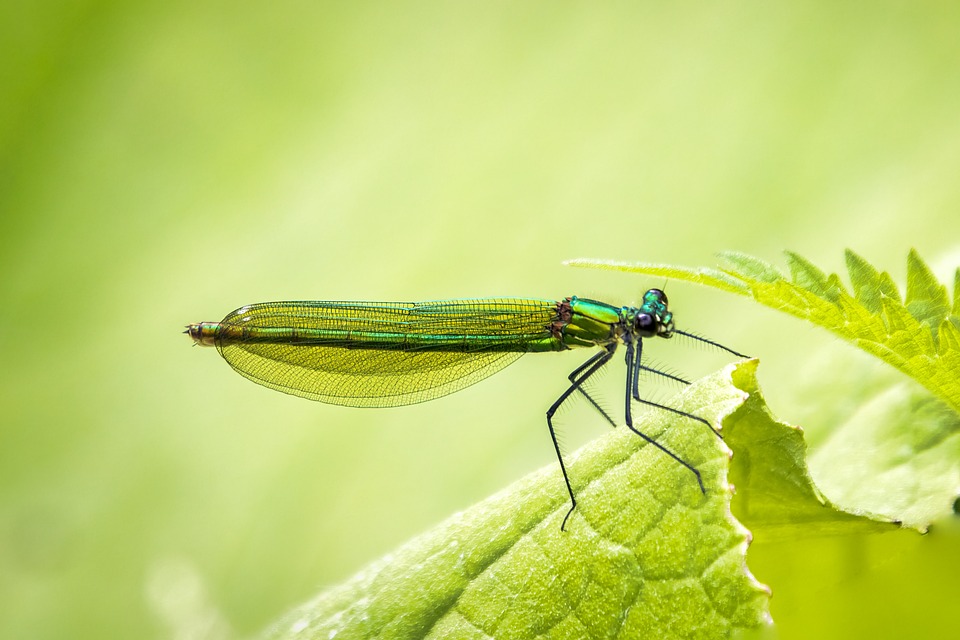As the warm months approach, outdoor activities, barbecues, and family gatherings become a regular part of our lives. Yet, with the joys of summer come the unwelcome presence of bugs. While traditional chemical insect repellents have long been a go-to solution for many, an increasing number of people are turning towards natural bug sprays, seeking safer, eco-friendly alternatives. But do these natural solutions work, and what does the science say?
The Risks of Traditional Bug Sprays
Conventional insect repellents often contain active ingredients like DEET (N,N-Diethyl-meta-toluamide) or picaridin, which have been long regarded as effective in warding off mosquitoes, ticks, and other pests. However, concerns about their safety have grown. Reports suggest that these chemicals can cause skin irritation, allergies, and even neurotoxicity in higher concentrations or with prolonged exposure. Additionally, there are environmental concerns related to their impact on wildlife and ecosystems.
Given these issues, many individuals and families are seeking safer alternatives that avoid harmful chemicals without compromising effectiveness.
Understanding Natural Bug Sprays
Natural bug sprays primarily utilize plant-derived ingredients, which are less likely to cause adverse side effects or harm the environment. The efficacy of these sprays often relies on essential oils known for their insect-repellent properties. Some of the most popular ingredients found in natural bug sprays include:
1. Citronella
Derived from lemongrass, citronella oil is widely recognized for its mosquito-repelling properties. Studies show that citronella can reduce mosquito landings by masking the scents that attract them, making it an effective natural option.
2. Lemon Eucalyptus Oil
Research published in the New England Journal of Medicine indicates that lemon eucalyptus oil can be as effective as DEET in providing protection against mosquitoes. It contains a compound called p-menthane-3,8-diol (PMD), which is a natural repellent that can last for several hours.
3. Tea Tree Oil
Known for its antimicrobial properties, tea tree oil is also effective against various insect pests. Its strong scent can deter many species, including mosquitoes and flies.
4. Lavender Oil
Not only does lavender oil provide a pleasant aroma, but its insect-repelling properties are well-documented. Studies suggest that lavender may repel mosquitoes and even help in keeping flies at bay.
5. Peppermint Oil
The strong odor of peppermint can effectively repel mosquitoes and other insects. The oil’s cooling effect can also soothe skin irritation caused by bug bites.
6. Neem Oil
Neem oil is derived from the seeds of the neem tree and is particularly effective against a variety of insects. Its active compounds disrupt the growth of insect larvae and deter adult insects.
The Science Behind Natural Solutions
The effectiveness of natural bug sprays is not solely anecdotal; there is a growing body of scientific literature to support their use. Studies have shown that essential oils can block the olfactory receptors that insects rely on for navigation and attraction. For instance, research highlighted in the Journal of the American Mosquito Control Association revealed that a mixture of essential oils could significantly reduce mosquito activity in a controlled environment.
However, it’s essential to note that while natural repellents are effective, they often require more frequent application than their synthetic counterparts. Their efficacy is generally shorter-lived — typically lasting for about two to three hours — compared to DEET products that can offer protection for an entire day.
Safety and Efficacy: Finding a Balance
When choosing a natural bug spray, it’s crucial to consider concentrations, formulations, and your individual skin sensitivity. Many natural sprays may appear ineffective initially if applied too sparingly or in insufficient quantities.
Additionally, labeling and ingredient transparency are important. Look for products from reputable brands that provide detailed information regarding their ingredients and any clinical testing they may have undergone.
Conclusion
Natural bug sprays present a compelling alternative for those looking to avoid chemical-based repellents. With effective active ingredients derived from plants, they can provide safe and effective protection against insects. As consumers increasingly prioritize health and environmental sustainability, the demand for these natural solutions will likely continue to rise.
Whether you’re planning a camping trip, a backyard barbecue, or simply taking a stroll in the park, opting for a natural bug spray can ensure you enjoy the outdoors while protecting your health and the environment. Making informed choices and understanding the science behind natural repellents empowers consumers to enjoy a bug-free summer without the worry of harmful chemicals.
